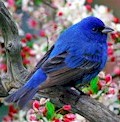House Wrens are birds that love to be on the ground. They hop in and around all kinds of shrubbery and low branches while foraging for food. They generally like to sing while going about for food. Because of their varying brown coloration and small size they blend in quite well with their surroundings. They love thickets and overgrown parts of yards or parks in almost any area. A fun bird to watch, but you have to be quick to see them. They are one of the more common birds in the country so they can be seen almost everywhere. Their call is a short but familiar sound that you can hear quite often as they jump and hop around.
With your binoculars take some time and look for general markings and characteristics, things that you notice right off. Do not spend a lot of time trying to memorize different aspects of the House Wren. Just look for general information and then you will be able to quickly recognize what group these birds belong to by noticing size, general shape, colors and their behavior.
I suggest that you keep a note book of these characteristics. You can add to it from time to time. This will help you understand and learn. But be patient and note things only one at a time. Otherwise you may get tired and discouraged because you can’t remember everything at once. It will all come in time as you watch these birds. Also take a look at the field marks such as a wing bar and eye ring markings to tie some IDs down.
Please remember also to note what time of year you see them as well as other kinds of birds you see in your neighborhood. Then you will be able to keep track of them better next year when the return.
A good field book on birds will help, but do not try to memorize everything in it all at once. Just learn about your specific bird of interest.
House Wren Size and ShapeA small, compact, flat-headed, with a long, curved bill and fairly long narrow tail.
Color PatternLight subdued brown with paler throat and under parts, darker-barred wings and tail.
BehaviorHops quickly around and through tangles and low branches; sings frequently.
HabitatForest edges, thickets, overgrown parts of yards and parks.
Birding is a great sport, especially watching House Wrens. Their antics and activities will keep you busy for hours. With some enjoyable work in preparation by learning a few basics about them and with a good pair of bird watching binoculars you can have many hours of pleasure with your family or by yourself.
Roger Johnson
